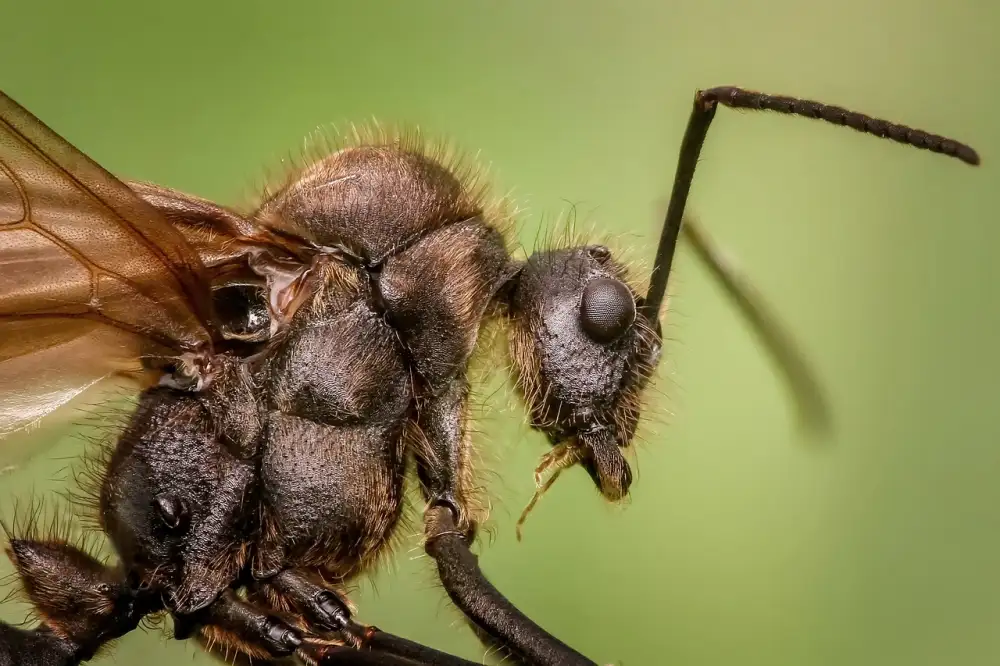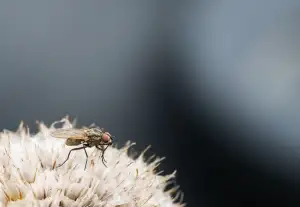Kitchen Ant Infestation? Here's How to Get Rid of Ants in Your Kitchen!

- Identify the source of the ant infestation in your kitchen.
- Clean up food spills and crumbs to remove ant attractants.
- Seal entry points such as cracks and gaps to prevent ants from entering.
- Use natural ant repellents like vinegar, citrus peels, or cinnamon.
- Set up ant baits or traps to eliminate ant colonies.
- Consult with a professional pest control service if the infestation persists.
Identify the source of the ant infestation in your kitchen.
Identifying the source of an ant infestation in your kitchen is crucial to effectively eliminate the problem. Ants are attracted to food sources, so start by locating where they are congregating. Check for food spills, crumbs, or improperly sealed food containers that may be attracting ants. Additionally, inspect areas near windows, doors, and pipes where ants may be entering your kitchen. By pinpointing the source of the infestation, you can take targeted steps to address the issue and prevent future occurrences.
Clean up food spills and crumbs to remove ant attractants.
One of the most effective ways to get rid of ants in your kitchen is to clean up food spills and crumbs. Ants are attracted to sources of food, so by removing these attractants, you can help deter them from entering your kitchen. Be sure to wipe down countertops, sweep floors, and properly store food in airtight containers. Regularly empty and clean garbage bins to avoid any lingering odors that may attract ants. By maintaining a clean and tidy kitchen, you can significantly reduce the chances of an ant infestation.
Seal entry points such as cracks and gaps to prevent ants from entering.
To prevent ants from entering your kitchen, it's crucial to seal off any potential entry points such as cracks and gaps in walls, floors, and windows. Ants are incredibly small and can squeeze through even the tiniest openings, so thorough inspection is essential. Use caulk or weather stripping to seal up these entry points effectively. By blocking these access routes, you can significantly reduce the likelihood of ants invading your kitchen in search of food sources.
Use natural ant repellents like vinegar, citrus peels, or cinnamon.
When dealing with an ant infestation in your kitchen, natural ant repellents can be effective in deterring ants from entering your living space. Ingredients such as vinegar, citrus peels, and cinnamon are known to have strong scents that ants dislike. You can create a solution of equal parts water and vinegar to spray around entry points and areas where ants are present. Citrus peels can also be placed near ant trails or entry points to ward off these pests. Additionally, sprinkling ground cinnamon along baseboards or countertops can act as a barrier to keep ants at bay. These natural remedies are safe alternatives to chemical insecticides and can help manage ant problems in your kitchen effectively.
Set up ant baits or traps to eliminate ant colonies.
Setting up ant baits or traps is an effective way to eliminate ant colonies in your kitchen. Ant baits contain a slow-acting poison that worker ants carry back to the colony, eventually killing off the entire population. Place the baits near ant trails and areas where you have seen high ant activity. Traps can also be used to capture ants, reducing their numbers quickly. Make sure to regularly check and replace baits or traps as needed until the ant infestation is fully eradicated.
Consult with a professional pest control service if the infestation persists.
If despite your efforts the ant infestation in your kitchen persists, it may be time to seek help from a professional pest control service. Pest control experts have the knowledge and tools to effectively deal with ant colonies that are difficult to eliminate on your own. They can assess the extent of the infestation, identify the ant species involved, and provide targeted solutions to eradicate the problem at its source. By consulting with a professional pest control service, you can ensure a thorough and long-lasting solution to your ant infestation issue.
Published: 17. 03. 2024
Category: Home



